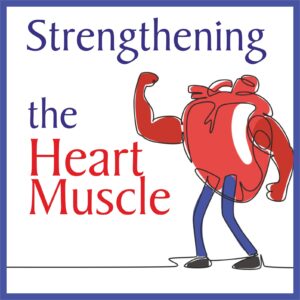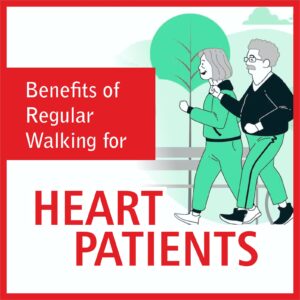Embracing the Benefits of Regular Walking for Heart Patients
In a world where technological advancements often overshadow simpler solutions, the act of walking remains one of the most profoundly effective ways to promote heart health. For individuals grappling with heart conditions, embracing a routine of regular walking can be a game-changer, offering a myriad of benefits that extend beyond just physical fitness. Let’s delve into the incredible advantages that walking brings to the hearts and lives of patients battling cardiovascular issues.
- Strengthening the Heart Muscle:

The heart is a muscle, and like any other muscle, it thrives when put to gentle yet consistent exercise. Walking is an ideal way to elevate the heart rate without overwhelming it, promoting better circulation and ultimately strengthening the heart muscle. As patients gradually increase their walking distance and intensity, their heart’s capacity to pump blood efficiently improves, reducing the strain on the cardiovascular system.
2. Lowering Blood Pressure:
Hypertension is a common concern for heart patients, but walking can play a pivotal role in managing and even lowering blood pressure. Engaging in regular walking has been shown to enhance the flexibility of blood vessels, enabling them to expand and contract more effectively. This, in turn, contributes to a reduction in blood pressure levels, lessening the risk of heart-related complications.
3. Improving Cholesterol Profiles:

Walking might seem like a simple activity, but its impact on cholesterol levels is remarkable. Regular walking has the potential to raise the levels of “good” HDL cholesterol while decreasing levels of “bad” LDL cholesterol. This balancing act is crucial for heart health, as it minimizes the buildup of plaque within arteries, reducing the chances of atherosclerosis and heart attacks.
 4. Managing Weight and Diabetes:
4. Managing Weight and Diabetes:
Maintaining a healthy weight is crucial for heart patients, and walking is a gentle yet effective way to achieve this goal. Combined with a balanced diet, regular walking can aid in weight management by burning calories and boosting metabolism. Additionally, walking can improve insulin sensitivity, making it a valuable tool for managing diabetes – a condition often linked to heart issues.
5. Reducing Stress and Anxiety:

Physical health and mental well-being are deeply intertwined, and walking has the power to positively influence both. Engaging in regular walks releases endorphins, the “feel-good” hormones, which can alleviate stress, anxiety, and depression. For heart patients, managing these emotional factors is pivotal, as heightened stress levels can contribute to heart strain.
6. Enhancing Overall Fitness:
Walking might be a heart-focused activity, but its benefits extend to the entire body. Regular walking improves lung capacity, increases muscle strength, and boosts endurance. This newfound overall fitness not only aids heart patients in their day-to-day activities but also instills a sense of empowerment and accomplishment.
7. Encouraging Social Engagement:
Heart health isn’t solely about physical aspects; it’s also about emotional and social well-being. Walking can be a social activity – joining a walking group or strolling with friends and family can provide heart patients with a supportive network, combating feelings of isolation and boosting morale.
8. Long-Term Sustainability:

One of the most appealing aspects of walking as an exercise for heart patients is its sustainability. Unlike high-intensity workouts that might be challenging for some individuals, walking is low-impact and can be adapted to suit various fitness levels. This makes it a viable long-term option, ensuring that heart patients can maintain their exercise routine consistently.
In conclusion, the benefits of regular walking for heart patients are undeniable. From enhancing heart muscle strength to improving cholesterol levels, managing weight, and promoting mental well-being, walking is a holistic approach to heart health. It’s a testament to the fact that sometimes, the simplest solutions yield the most profound results. If you’re a heart patient, consult your healthcare provider and embark on a journey towards improved heart health – one step at a time.






